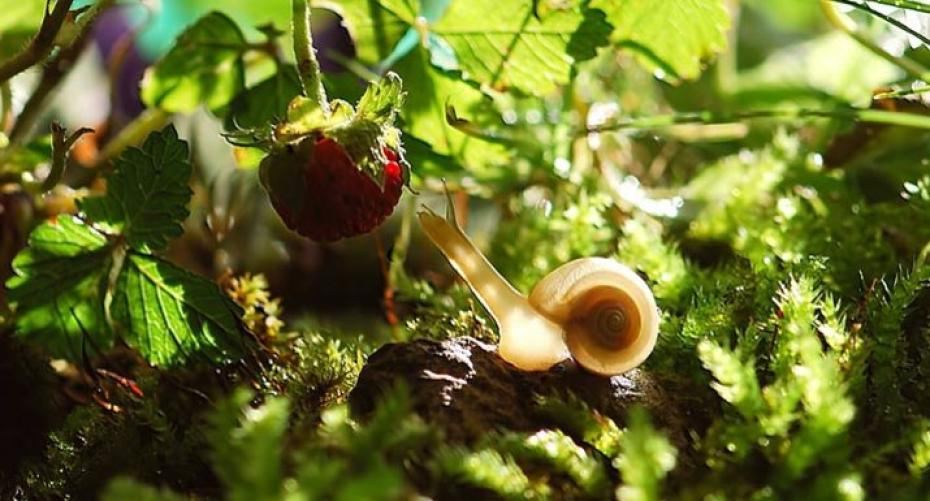Follow our hints and tips to keep slugs and snails at bay in your garden?
Slugs and snails are the bane of a gardener’s life; unfortunately none of us escape their rampaging through our prized fruit, flowers and vegetables. If you don’t take action they can decimate your plants in a single night’s work. It’s not necessary to protect all your plants; but it is essential to protect the most vulnerable varieties especially your hostas and your summer bedding. There are two ways of dealing with slugs and snails; either deter them or dispose of them completely. There are more eco-friendly deterrents, available from your local garden centre, on the market than ever before. There are pellets which are harmless to wildlife, pets and children if used in the manner specified on the packaging. Beer traps are small plastic devices which are sunk into the garden and, as the name suggests, filled with irresistible beer, into which the slugs fall and cannot escape. How you dispose of them after that is entirely up to you.
Our short video shows you a few ways of dealing with the problem but there are more alternatives available; our shop floor staff are only too happy to advise you on the best way for you to tackle this problem.
If you don’t like the idea of disposing of them but just want them to crawl away into your neighbour’s garden then there are several ways you can deter them. Wool pellets are a good eco-friendly way to put them off as they don’t like crawling over them. If you have a problem with slugs eating plants in containers you can choose a container with a rough, gritty surface which they can’t crawl over or place a copper band around the pot; this apparently produces a slight electric charge which puts off the slimy molluscs, but this has not been scientifically proven. Other environmentally friendly deterrents include placing the pot on small sharp gravel stones, placing a ring of sawdust or crushed eggshells around the pot or smearing a thick band of petroleum jelly around the pot. Or you can always go out at night with a torch and pick them off into a bucket, then dispose of them.
Whichever method you choose unfortunately you can’t just hope they will go away and pester someone else - they won’t, they will munch their way through your garden until everything is in tatters.


